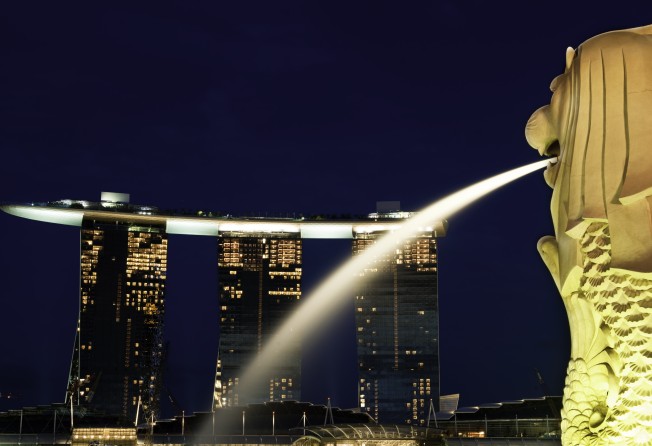Twilight in the Lion City as social media rends Singapore’s dynastic rule asunder

Watching the Singapore prime minister’s family squabbles surface on social media, I’m reminded of the lonely figure of Henry Pu Yi in Reginald Johnston book Twilight in the Forbidden City, and portrayed in Bernardo Bertolucci’s movie The Last Emperor.
Like Pu Yi, the premier seems increasingly detached from geopolitical and technological challenges.
The family squabble captivating Singapore’s attention has the potential of morphing into a string of sensational revelations that erode Lee Hsien Loong’s credibility.
It wasn’t that long ago that any publication that dared to use any permutation of the word “dynasty” to describe the Lee family’s governance of Singapore would be slapped with expensive lawsuits.
But technology has rendered that strategy obsolete. Singapore’s most sensational controversy started with a Facebook posting by Lee Wei Ling, the daughter of the late Lee Kuan Yew. She claimed her brother, the incumber prime minister, had abused his power in commemorating the first anniversary of the elder statesman’s passing to establish a dynasty.
The prime minister responded on Facebook that he was deeply saddened by his sister’s claim.
“The idea that I should wish to establish a dynasty makes even less sense. Meritocracy is a fundamental value of our society…,” he said. But, he didn’t sue his sister.
Instead, the world is watching an internecine family drama freely and interactively on social media. Perhaps too many online users invoking the word “dynasty” makes it impossible to litigate.
Then again, perhaps Lee Kuan Yew was justifiably wary about his future generation’s attempts to deify leaders.
Treating humans like demigods only worked until, unlike gods, they actually died. And when they die, deified leaders leave a governance mess that takes generations to reform.
When China’s Great Helmsman passed away, his disastrous legacy of the Cultural Revolution pressed China’s stability to the brink.
For Singapore, the choice between the US and China as ally had always been easy, especially since China was economically and militarily dominant, close to the city’s shores; in the same way that an alliance with America was without a doubt beneficial to Singapore when the US was clearly the dominant power.
But the current prime minister seems less adept at balancing diplomacy than his late father. Today’s geopolitical competition in Asia has become more complicated. Singapore is confronted with more difficult choices.
Singapore has long sought to build a domestic high tech economy. But the process and outcome are unpredictable.
I met with a group of Singapore’s millennials on a recent trip. They are more focused on finding a tech opportunity or funding their startup. Their role models are Mark Zuckerberg and Evan Spiegel - icons of the New Economy rather than Singapore’s old economy.
This is a generation that won’t look to Chinese history for intellectual reference. After all, what useful advice does a Tang Dynasty (618-907) emperor have to offer anyone in the modern internet world? Aside from its propaganda value of Confucian ideals, history’s only use for young people is to inspire video games.
The social media and sharing economy cruelly break rules and don’t necessarily revere hierarchy and patriarchs.
Young people are detached, almost bemused as if Singapore’s latest controversy is just another trending celebrity gossip topic in social media, but not quite aware of what it means for their future.